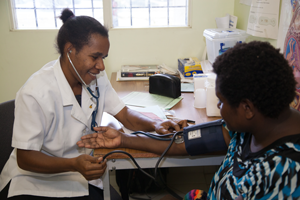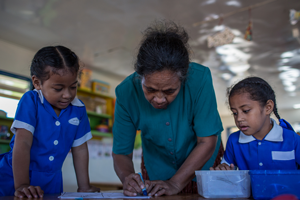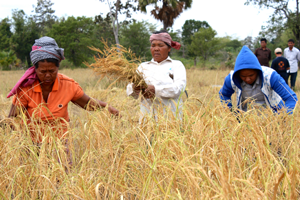All over Australia, organisations big and small, are doing great work to help people in their community and overseas. Service clubs, faith-based groups, peak bodies of doctors and nurses, as well as local government councils, diaspora groups, and many other community organisations have been helping people in developing countries for years, and building strong connections in the countries where they work.
DFAT wanted to hear about the work that organisations like these are doing with communities overseas and get their ideas about how the Australian Government could engage more Australians in regional, rural and urban communities in the aid program.
In November 2017, DFAT completed a 'Listening Tour' around all capital cities. We also conducted an online survey in January 2018 to learn more about Australian community organisations who run overseas development activities.
The Government is considering how it might encourage some of the most high-performing of these groups to become involved in the aid program.
Background
The Australian Government has worked with non-government organisations (NGOs) and other community organisations for more than 40 years to support the world's poorest and most vulnerable people through the Australian aid program. DFAT partners with many professional international development NGOs through bilateral country programs such as in Bangladesh with BRAC, and through thematic or regional programs such as the Civil Society Water Sanitation and Hygiene Fund and the Pacific Women Shaping Pacific Development program. DFAT also runs the Direct Aid Program, a small grants program, which is administered by Australian embassies and high commissions overseas. DFAT also manages Australia Awards which offers international scholarships, fellowships and short courses.
Two of DFAT's longest running international development programs engage with both ends of the spectrum of Australian civil society. Through the Australian NGO Cooperation Program (ANCP), DFAT partners with accredited Australian professional development NGOs to implement their own development and poverty alleviation programs overseas. At the other end of the spectrum lies the Australian Volunteers program, which provides opportunities for individual Australians to use their skills in developing countries and contribute to the Australian aid program.
In between the large international development NGOs and individual volunteers, are a range of community groups, many that are run solely by dedicated volunteers, which have no engagement with DFAT. The 'Listening Tour' was part of DFAT's efforts to learn more about their work and identify possibilities for collaboration.
Useful links
Australian Council for International Development (ACFID)
ACFID is the peak body for Australian international development NGOs. DFAT has a long-running partnership with ACFID, which is a key mechanism for pursuing DFAT's objective of working with NGOs to achieve the goals of the Australian aid program. In addition to representing the collective views of their NGO members to Government, ACFID provides learning and development programs for international development NGOs.
The ACFID Code of Conduct is a voluntary, self-regulatory code that sets good standards for program effectiveness, fundraising, governance and financial reporting, and aims to improve development outcomes.
Australian Charites and Not-for-Profit Commission (ACNC)
The Australian Charities and Not-for-profits Commission (ACNC) is the independent national regulator of charities. The ACNC helps to maintain, protect and enhance public trust and confidence in the sector through increased accountability and transparency, and support and sustain a robust, vibrant, independent and innovative not-for-profit sector. As part of the ACNC's work to support the sector, it provides guidance materials, factsheets and templates for charitable or not-for-profit organisations starting out.
Official Development Assistance (ODA)
Official Development Assistance (ODA) funding is administered by Governments to promote the economic development and welfare of developing countries. For more information on what projects qualify as ODA eligible, see the What is ODA? Factsheet on the OECD website.
See where the Australian aid program delivers aid throughout the Pacific, Asia, the Middle East, Africa, and Latin America and the Caribbean. You may also be interested in the List of Developing Countries as declared by the Minister for Foreign Affairs for the purposes of the Overseas Aid Gift Deduction Scheme.



